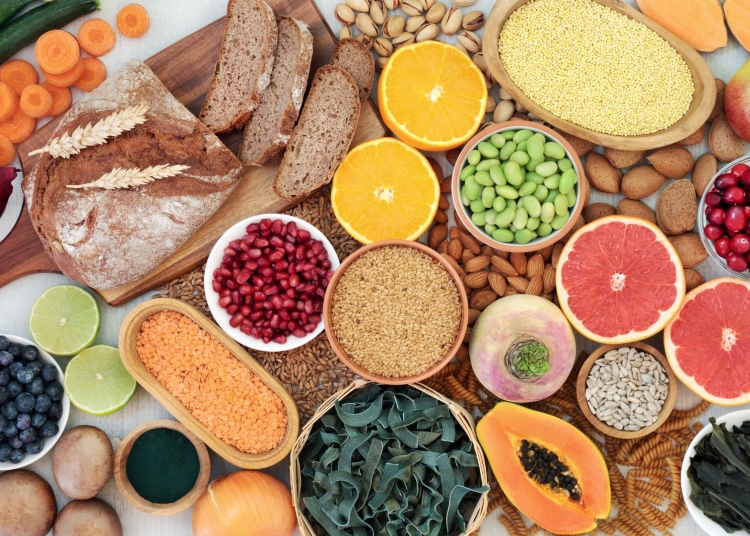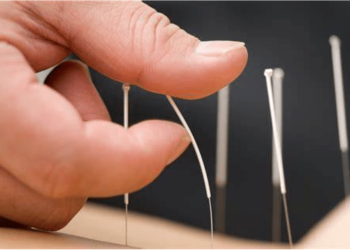After mere 10 seconds of chewing and swallowing food, our stomach starts the digestion process. And if your meal lacks enough fiber, then your blood sugar level will spike and drop dramatically within 45 minutes. You start feeling tired, cranky, weak, and hungry. Hence, your body needs a high fiber diet to control this roller coaster of sugar levels.
Fiber-rich meals come in varied flavors and can have great medicinal effects on common diseases. Out of a slew of health benefits that each type of fiber offers, we have listed 5 that will encourage you to increase your daily fiber consumption now.
What is Fiber?
Before we jump on its benefits, let’s start by answering a basic question- ‘what is fiber?’.
Fiber is a type of carbohydrate that is commonly found in plant-based foods, such as whole grains, fruits, nuts, seeds, vegetables, and beans. It also comprises powerful nutrients and minerals that humans need for optimal growth and health.
What is Soluble and Insoluble Fiber?
The two important types of fiber are soluble and insoluble, both of which function in different ways.
Soluble Fiber
Soluble fiber attracts water and creates a gel that slows down the digestion process. Hence, contributing to our weight loss efforts. Food products that are rich in soluble fiber are edible plant skins, oats, and nuts.
Insoluble Fiber
Insoluble fiber, as the name suggests, repels water. It improves bowel health and mitigates the risk of diverticular disease. Some good sources of insoluble fiber are nuts, beans, khapli wheat, potatoes, carrots, and wheat bran.
What’s Fiber Good For?
When consumed in the right quantity, fiber can reduce several health issues, including diabetes, obesity, colon cancer, cholesterol, etc. The following points explain some excellent health benefits of a fiber-rich diet.
- Brings Down Cholesterol
Soluble fiber acts like a sponge, which is good for reducing cholesterol. Absorbent properties of fiber regulate cholesterol circulation and eliminate it from the body. This is specifically one of the soluble fiber benefits that you can seek from apples, barley, strawberries, and oat bran.
- Reduces Blood Sugar Levels
Fiber-based meals push the slow-mo button for your blood sugar spikes (metaphorically of course). When you consume food with fiber, it takes longer to digest, and the sugar present in them absorbed at a much slower pace. Therefore, the blood sugar level does not rise or fall too rapidly. As glucose level is steady, you feel less hungry and avoid overeating.
- Ensures Optimal Weight and Health
If you are trying to shed off a few pounds or avoiding putting on a few, then fiber can be your best companion. Fiber-based foods fill you up faster, keeping you satiated for longer and reducing untimely hunger pangs. Also, they restrict your body from absorbing calories present in the meals you eat. Thus, helping you in your weight loss journey.
- Improves Digestion
One benefit of fiber is that it acts as a natural scrub brush, hence, keeping digestion pipes clear so that the food you consume goes down easily. Fiber-rich diet ensures regular digestion and less constipation. Also, it reduces carcinogenic activity and the risk of diverticulitis, an infection in the pouches formed in the colon. Ensure a 25-40 gm intake of fiber every day through berries, nuts, beans, and whole grains.
- Acts as a Natural Detox
Talking about the top health benefits of fiber, we can’t ignore that it is a natural method to eliminate toxins from the G.I. tract. Fiber absorbs harmful compounds, including unhealthy fats and excess estrogen, before it mixes up with the body. Moreover, insoluble fiber makes the process faster by removing chemicals, such as pesticides, BPA, and mercury, quickly from our system. The less they stay in a body, the less harm they cause.
- Builds Strong Bones
Another notable benefit of consuming fiber is that soluble fiber present in soybeans, oats, and wheat increase the bioavailability of minerals, thus, maintaining bone density.
Conclusion
If you are not consuming enough fiber daily, then it’s time to start eating a more fiber-rich diet. Prefer natural and organic sources of fiber, such as fresh fruits and vegetables, seeds, whole grains, and nuts as they also provide minerals, vitamins, and phytonutrients that we need to maintain a healthier life.























